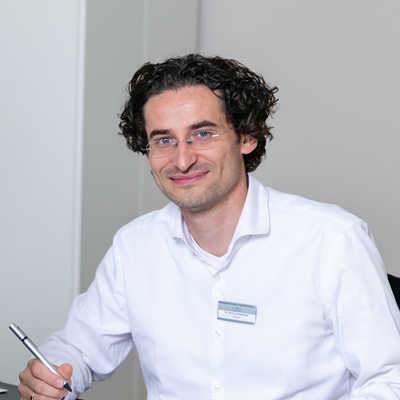Private clinic for obsessive-compulsive disorder
When the tendency to control gets the upper hand
The obsessive-compulsive disorder manifests as obsessive thoughts and overtly visible or thoughtful compulsive acts. Obsessive thoughts are ideas, conceptions, or impulses that impose themselves on the affected person against his or her will and occupy him or her stereotypically- that is, with the same thought repeatedly. These obsessive thoughts are almost always experienced as senseless or tormenting, shame the person affected, and usually occur in combination.
These obsessive-compulsive disorders cause considerable distress: they are time-consuming and interfere with daily life, occupation, social activities, and relationships with other people. In addition, they are often coupled with other disorders, such as depressive disorders, anxiety disorders, and/or phobias. Learn more in our patient information on obsessive-compulsive disorder
Get a no-obligation consultation with our experts now: Tel. +49 3996 140490.
Obsessive Compulsive Disorder Symptoms
- Compulsive thoughts and fears: e.g., the idea of never being good enough, or the fear of losing a loved one
- Aggressive, obsessive thoughts: e.g., fear of hurting someone – physically, verbally, or possibly involving sexual acts
- Compulsive ruminating: issues need to be thought through again and again and constantly push themselves to the forefront of the mind
- Constant doubting
- Compulsive (ritualistic) repetition of specific thoughts
- Compulsive counting
Although a distinction is made between obsessive thoughts and compulsive acts in the symptomatology of obsessive-compulsive disorder, they usually occur in combination.
Frequent compulsive acts
- Washing and controlling compulsion
- Compulsion to touch
- Order compulsion
- Compulsive verbal rituals: respectfully repeating certain phrases, sentences, or melodies
Causes of compulsive behavior
- Disturbed metabolism of certain neurotransmitters
- Attempts to cope with anxiety
- Genetic factors
- Predominant life events and chronic stress
- Preparing styles
If several risk factors co-occur, affected individuals can no longer adequately cope with their everyday stresses and the possibility of developing OCD increases.

